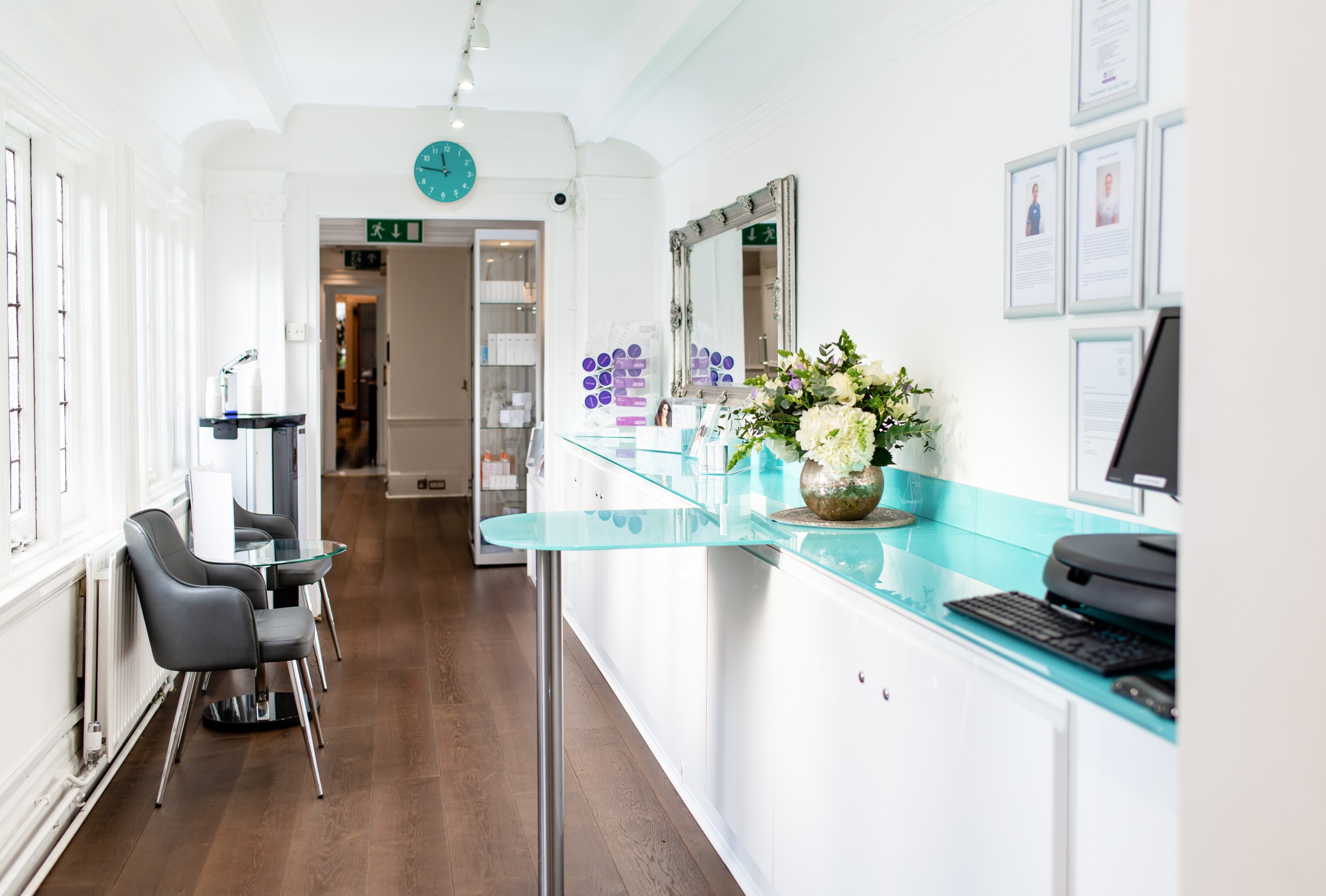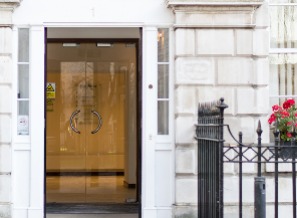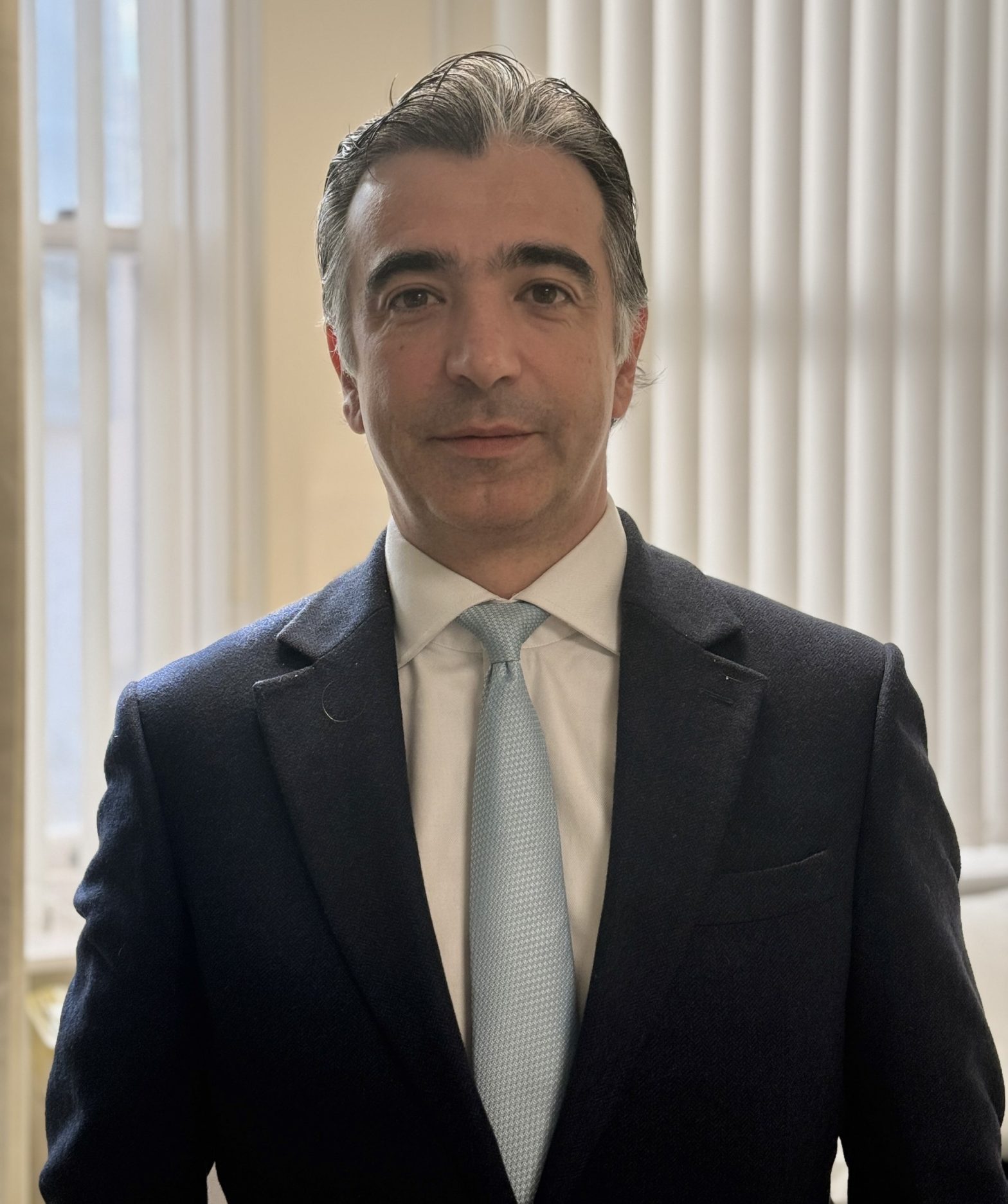
- Our Hernia Repair Clinic in London Harley Street offers short, day-case procedures
- Alternative NHS Hernia Repair treatments performed under local anaesthetic
- Reliable hernia repair surgery with a high success rate
What’s on this page
Medically reviewed by Mr Tahir Hussain
CONSULTANT GENERAL AND VASCULAR SURGEON
MBBS, FRCS (gen, surg.), MS Masters in Surgery
Last Reviewed July 5th 2024
Related Treatments
Hernia Repair Surgery (Herniorrhaphy / Hernioplasty)
At least one in ten people will develop a hernia at some point during their lifetime and hernia repair is one of the most commonly performed surgical procedures worldwide.
What is a hernia?
A hernia occurs when an internal organ or body part protrudes through the muscle due to weakness. This then often causes a lump under the skin. Hernias can affect anyone of any age and often need surgery as treatment.
Getting hernia repair surgery on the NHS may come with long wait times and difficult assessment stages which means lots of hernias are being left untreated.
How to treat a hernia?
Hernia Surgery, also known as a herniorrhaphy or a hernioplasty is the best treatment for hernia repair. We are pleased to offer patients private hernia repair surgery in Harley Street London with our expert surgeons: Mr Tahir Hussain, Hernia and Vascular Consultant, and Mr Piero Nastro, Laparoscopic, General and Colorectal Consultant Surgeon.
There are two types of hernia repair surgery techniques, open surgery and laparoscopic (keyhole) surgery. Mr Hussain offers patients Open Mesh Repair surgery also known as a Hernioplasty. This involves using a surgical mesh to repair the hernia opening. Instead of solely stitching the mesh into place, we allow the body to heal naturally around it which can help to prevent a recurrence.
Open surgery for hernia repair is the NICE recommended treatment for hernia.
Benefits of Hernia Repair with Mesh
- Can be performed under local anaesthetic
- Short procedure
- Reliable repair with a high success rate
- Day-case surgery
- No issues for older patients
At our Hernia Clinic, we treat a wide variety of hernia types including:
- Inguinal Hernias
- Adult Umbilical Hernias
- Femoral Hernias
- Epigastric Hernias
- Spigelian Hernias
- Sports Hernia
Where can I get Hernia repair in London?
Private Hernia Repair Surgery Consultations for self-pay patients are available at our hernia clinic in London Harley Street.
Why choose Private Hernia Repair?
- Fast track your hernia repair surgery and avoid long waits.
- Consultations with experienced consultant hernia repair surgeons.
- Private hospital with state-of-the-art facilities
- High standard of care with dedicated staff.
- Dedicated helpline and aftercare with our nursing team.
- Day case procedures, no need for an overnight stay.
Hernia Repair Surgery at a glance
Procedure Time
30 – 60 minutes
Anaesthetic Type
Local Anaesthetic
Hospital Stay
Day Case
Support Garment
Bandaging
Washing
Keep wound dry for 5 days
Sleeping
No Restrictions
Driving
2 Days
Up & Mobile
1 day
Sexual Activity
1 week
Back to Work
2 – 3 days
Excercise
4 weeks
Travel
2 weeks
Full recovery Time
6 weeks
What causes a hernia?
Whilst there are lots of different types of hernias, they are all caused by the same thing which is an opening or weakness of muscle or fascia which allows organ or tissue to be pushed through.
Anything that causes pressure in the abdomen can cause a hernia which includes:
- Lifting heavy objects
- Persistent coughing or sneezing
- Recurrent constipation or diarrhoea
Things such as smoking, poor nutrition, pregnancy, and obesity can also put you more at risk of developing a hernia..
What are the symptoms of a hernia?
The most common symptom of a hernia is a bulge or lump that appears usually in the abdomen or groin area. The lump can often be pushed back in and may disappear when laid down. Other symptoms include:
- Pain or dull ache at the site of the hernia
- Discomfort when lifting or bending over
- Hernia Bulge increasing in size over time
- Heavy or full feeling in the abdomen
- Weakness or pressure in your groin
- Heartburn
What type of Hernia do I have?
This is the most common type of hernia which occurs when fatty tissue or part of the intestine or bowel pokes through. This type of hernia will be noticeable around the groin area. It is generally caused by repeated strain on the abdomen but can also be associated with old age. We offer Inguinal Hernia Treatment at The Private Clinic
An umbilical hernia, commonly referred to as belly button hernia usually occurs at birth. It is when the opening that the umbilical cord passes through, does not seal properly following birth. This creates a weakness for fatty tissue or the bowl to proceed through. It causes a lump to appear on the abdomen near the belly button. Whilst more common in babies, it can also affect adults, particularly after repeated straining on the tummy. We are able to treat Adult Umbilical Hernias at The Private Clinic.
A femoral hernia is very similar to an Inguinal Hernia, but they are actually a lot less common and more frequent in women rather than men. They occur when the bowel or fatty tissue protrudes causing a lump in the upper thigh area. They usually appear lower than an Inguinal Hernia but have a higher risk of strangulation to the bowel and often require urgent attention. We are able to treat Femoral Hernias at The Private Clinic.
This occurs when the abdominal wall did not close completely during development. They often have minimal symptoms and often go unnoticed but, in some cases, they can cause a lump to appear below the sternum, or breastbone, and above the belly button. We are able to treat Epigastric Hernias at The Private Clinic.
A spigelian hernia is not very common but can be visible when there is a weakness in the spigelian fascia which is a layer of tissue that separates the two muscles groups that are at the front of the abdomen. A lump or bulge may appear to the side of the abdomen, below the belly button which is usually fatty tissue pushing through. We are able to treat Spigelian Hernias at The Private Clinic.
A sports hernia is a soft tissue injury that occurs in the groin area. It is most commonly caused by exercise or sports where there are intense twisting movements. This movement can cause a strain or tear of the soft tissue such as muscle, tendon or ligament in the groin or lower abdomen. It is also referred to as ‘athletic pubalgia’. Sport hernia’s are not often visible but it can cause severe pain in the groin area which can get better with rest, but often comes back when you return to sport. We are able to treat Sports Hernia at The Private Clinic.
What to Expect
The Consultation
A consultation will take place at our Private Hernia Clinic in London Harley Street with our Consultant General and Vascular Surgeon, Mr Tahir Hussain or Laparoscopic, General and Colorectal Consultant Surgeon, Mr Piero Nastro who are hernia specialists.
Your surgeon will:
- Listen to your concerns regarding your hernia
- Review your medical history
- Assess your hernia
- Discuss the best options suited to you
- Detail the risks and complications
- Review your expectations from hernia surgery
- Detail what will happen on the day of the procedure
- Go through the recovery and aftercare required
You will then meet with your dedicated patient coordinator who will provide you with a detailed hernia treatment plan with full cost and pricing details so you can leave feeling well-informed and able to decide if to go ahead with hernia repair surgery.

Your pre-operative appointment
In the interests of patient safety, all our patients are assessed against our patient selection criteria. Following your hernia treatment consultation and review of your past medical history, the physician or pre-operative nurse will choose the pre-operative tests considered to be appropriate, most of which are routine blood tests.
You will be provided with a pre-operative instruction sheet ahead of your procedure which will help you to prepare for your hernia repair surgery.

The Procedure
Open Hernia Repair surgery can be performed under local or general anaesthetic. This will be discussed at your consultation. The procedure will be performed at our Private London Hospital in Fitzroy Square.
The surgery will take around 30-60 minutes to perform and patients will be able to go home in the hours following.
On the day of your procedure, you will be given an admission time which is usually an hour before the agreed start time of surgery.
Once admitted:
- Our nursing team will record your blood pressure and prepare you ready for surgery.
- You will meet with your surgeon who will go through the procedure again and answer any questions you may have.
- You will then be marked up for surgery before being taken down to the theatre.
Hernia Mesh Repair Procedure
- Local anaesthetic will be administered.
- A small incision will be made across the site of the hernia.
- The problematic bulge is returned to where it came from.
- A hernia mesh implant will then be placed over the hole that caused the hernia.
- The mesh will then need to be held in place whilst the incision is closed to allow fibrous tissue to naturally grow around the mesh. This will help to strengthen the area and prevent another hernia from happening.
- Once the repair is complete, the incision will be closed with dissolvable stitches and a dressing will be applied.
You will then return to a recovery room where you will be able to rest. Our specialist nursing team will be on hand to ensure you are feeling well post-procedure and once we are happy with your recovery post-surgery you will be discharged by your surgeon.
You must leave the hospital accompanied by a family member or friend; you will not be allowed to drive yourself home.

Hernia Repair Surgery Recovery
Before you leave the hospital, you will be provided with aftercare instructions to follow and any required medication. You should ideally have someone with you for 24 hours following surgery so they can continue to monitor you.
A member of our nursing team will call you the day following your hernia repair surgery to make sure you are recovering well and feeling comfortable following the surgery and anaesthetic. You will have also been provided details on our on-call nursing team who you will be able to contact 24/7 should you have any concerns at any stage of your recovery time.
Your groin or abdomen may feel sore and uncomfortable after hernia repair surgery whilst the incision site heals. Pain medication should help manage this for the first few days post-op.
It is recommended that you drink lots of fluid and eat a healthy diet to avoid the risk of constipation.
If you need to move, cough, sneeze or stand then we recommend applying gentle pressure on the treated area before and during movement to reduce pain.
Many patients return to work 2-3 days following hernia repair surgery, this will depend on what you do for work as those with more strenuous roles may need to take longer off.
You should be able to return to most light activities after a couple of days, but we recommend avoiding heavy lifting and other strenuous activities for at least 4 weeks.

The Private Clinic have collaborated with Chrysalis Finance to offer 0% finance for our patients.*
*Acceptance is subject to status. Terms and conditions apply.
Frequently Asked Questions
Hernias are caused by anatomical weakness and can’t be passed on through family, so they are not hereditary. However, you may be more prone to developing a hernia if members of your family have experienced them as there may instead be a family history of weak muscles.
It is difficult to prevent the type of muscle weakness that leads to hernias, but there are things you can do to reduce pressure in your abdomen which can help to lessen your risk of developing an inguinal hernia. These include:
- Eating high fibre foods
- Maintaining a healthy body weight
- Regular exercise
- Taking care when lifting
- Not smoking
- Getting treatment for a persistent cough
It is not possible for a hernia to treat itself and if left treated, then there is a risk that it will get bigger. In some cases, hernias can become painful and the longer they are left, the more risk there is for complications such as strangulation or obstruction which then may require emergency surgery.
A strangulated hernia occurs when the hole in which the hernia is protruding closes on whatever is pushing through. In cases where the hernia is part of the bowl, this can become very serious as it may be shutting off blood vessels which can cause the organ to experience tissue death and release toxins into the bloodstream which could then go on to cause septicaemia. It is very important that if you experience your hernia change in appearance, severe pain, vomiting or constipation then to go to A&E immediately.
Yes, hernia repair surgery is available on the NHS however you will firstly need to be referred and then accepted for surgery before then joining a wait list for an operation date. This could take months.
By choosing to go private for hernia repair surgery you will not need to be referred and can see our expert Hernia & Vascular Consultant Surgeon within weeks. You will then also be able to choose when you wish to have hernia repair surgery to work around any important events.
Hernia Repair is Available in these Clinics
Why Choose The Private Clinic
- Our consultant has extensive experience in performing hernia repair surgery.
- Hernia treatment and recovery plan that’s tailored to you.
- With 40 years of expert care, we pride ourselves on putting patients first and delivering exceptional service.
- Fast access to quality hernia care.
- Treatments are carried out in our state-of-the-art London hospital in Fitzroy Square.
- Consistent care with as many consultations and follow-ups as you require from our compassionate team, led by an experienced Consultant in London Harley Street.
- 24-hour patient helpline direct to your nursing team and surgeon, which means we are always here to help should you have any concerns.
- Our excellent reputation for patient safety and satisfaction, honest advice and outstanding care mean your journey with The Private Clinic will be a premium experience.

Meet our Hernia Repair Surgeons
We are the UK’s leading cosmetic group and have some of the most experienced private hernia repair consultant surgeons working with us.
Consultant Laparoscopic, General & Colorectal Consultant Surgeon
Consultant General & Vascular Surgeon










